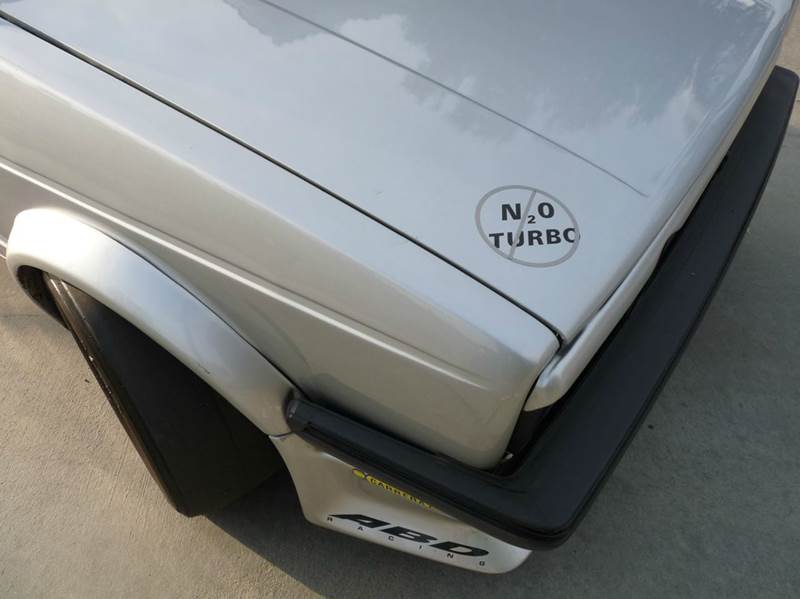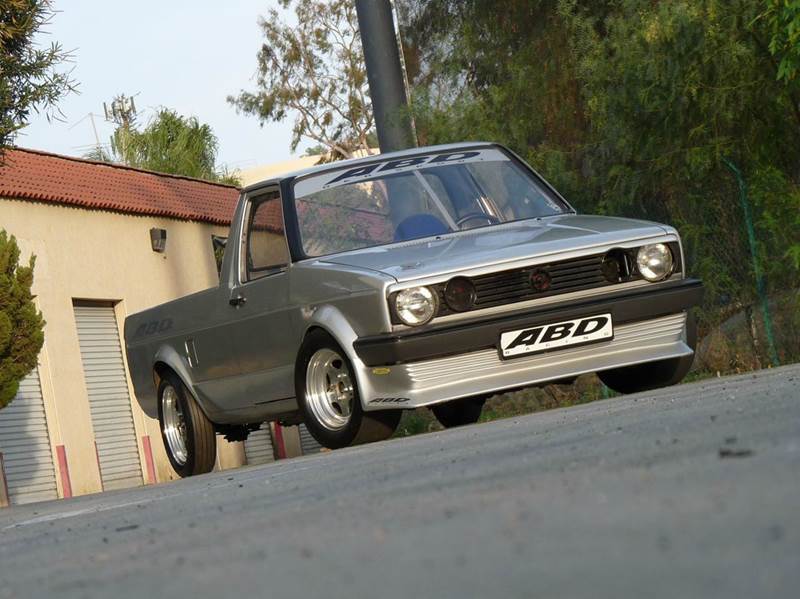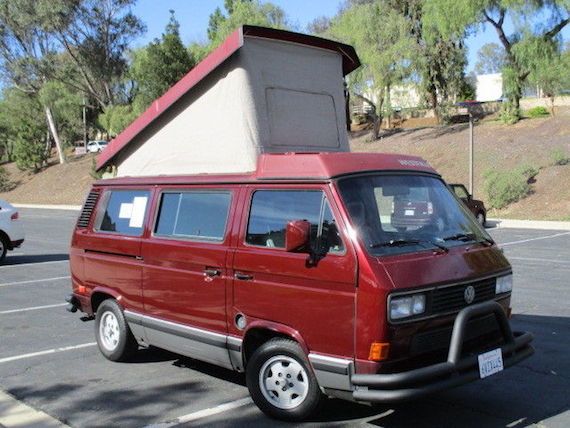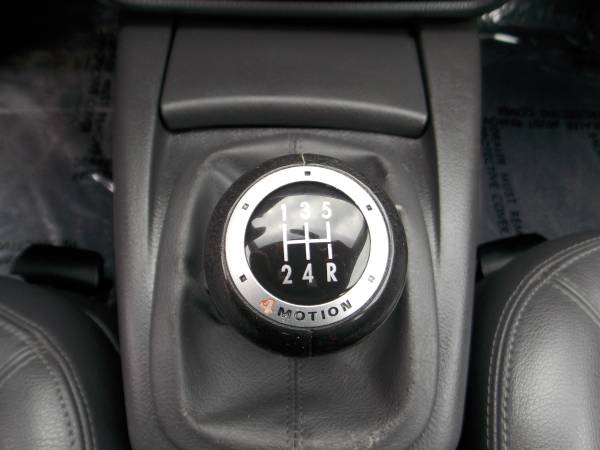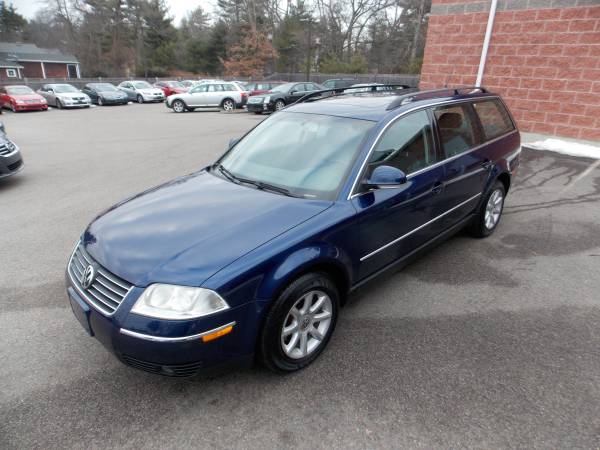When it comes to sporty wagons in the mid 2000s, your only options were really Audis and BMWs, right? Well, wrong – because Volkswagen dropped one pretty hot sleeper on our shores before elimination of the Passat wagon from the lineup. Granted, Volkswagen’s hottest entrant into the sport wagon market – the R36 – wouldn’t come here, but the normal 3.6 4Motion was darn close. With 280 horsepower on tap from the enlarged narrow-angle VR6 channeled through all four wheels, the unassuming Passat was the second most powerful wagon offered on these shores from VAG. Unless you spent another 50% to opt for the Audi S4 V8, this was as quick as U.S. bound German wagons got. Unlike the B5/5.5, the B6 chassis returned to the Golf-based platform, which was both a blessing and a curse. From a performance standpoint the change was a good one, as many of the items intended for the R32 model worked on the Passat now. However, the change to transverse engine placement from the inline Audi setup in the B5/5.5 meant that the “true” quattro drivetrain in the earlier 4Motions was replaced by the Haldex setup found in the R32 and Audi TT. Is this the end of the world? No, not really, and in fact because of this change you can opt to alter the power distribution with aftermarket control units. These 3.6 models were expensive and fully loaded, so they’re somewhat infrequently seen and generally unknown and unappreciated even in the German-specific realm:
Category: Volkswagen
Way back in time, before the proliferation of Instagram, Twitter and Facebook – indeed, before the Internet really got off its feet at all, dreams were made not with by-the-minute browser refreshes eagerly anticipating the next clever comment or picture of someone eating an avocado. If you weren’t actually traveling the automotive scene, you were totally reliant on your monthly delivery of new automobile magazines. In high school, I had at one point four different subscriptions and poured over the details of every single car that graced the pages of what was my Bible. But it was in the mid 1990s that I stumbled across a magazine that really spoke to me much more than the BMW-loving Car and Driver or the fairly vanilla Automobile; I found a copy of European Car. It was a complete revelation to me, to see the cars that not only I dreamt about but could actually afford parts for. Nearly as good, if not perhaps better, than the feature articles were the advertisements. The “Dr. Feelgood”s of the European tuner scene, companies like Techtonics Tuning and Total Audi Performance spoke to my specific needs in ways that the mainstream magazines couldn’t. And within those advertisements, one particular company became something of a legend among a small group of friends who all shared the enthusiasm for Volkswagens. That company was AutoBahn Designs, better known as ABD Racing – and what they had created was an absolute monster. In the days before the ubiquitous VR-swap for VWs, dropping a 16V into the nose of your car was about as hot as you could get. But ABD took that recipe to the next level with a custom-built 2.1 16V with massive compression and side-draft carburetors. But it was really what they put it in that set them apart, as ABD chose a Caddy for the massive build. The result, stripped out, painted up and dominating the import drag scene, still gives me goose bumps when I see it all these years later:
CLICK FOR DETAILS: 1980 Volkswagen Rabbit Pickup ABD 2.1 16V on eBay
Comments closed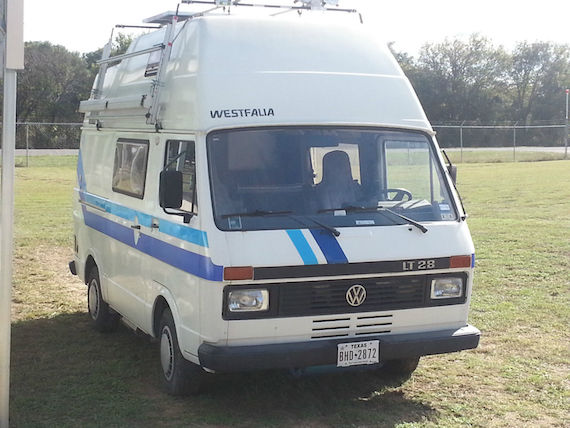
We’ve posted some interesting variations on the Volkswagen LT vans, the plus-sized Vanagons that never came to the US. From firetrucks to zombie defense vehicles to race team vans, they’re like VW’s Sprinter. Today’s LT28 model, indicating the lightest gross vehicle weight available (they went up to the LT55), is a special edition form Westfalia called the “Sven Hedin,” the Swedish world explorer. The bigger size of the LT allows for more amenities than would ever fit in a T3 like a shower, while the hightop makes standing up much more comfortable. The size and rarity are definitely the main draws here, as it’s showing some wear after its 125k miles and 28 years. The interior looks original but droopy, especially the wall-mounted cloth storage sacks. The exterior shows some cracked and possibly redone paint areas, and the incredible blue stripes have seen better days. All of the thick plastic Westfalia interior bits look great though and the turbodiesel inline-6 should be just getting into its prime, so as long as there aren’t a bunch of rust spots hiding, I think it has a lot of potential as a plus-sized camper.
Click for details: 1988 Volkswagen LT28 Westfalia on eBay
Comments closed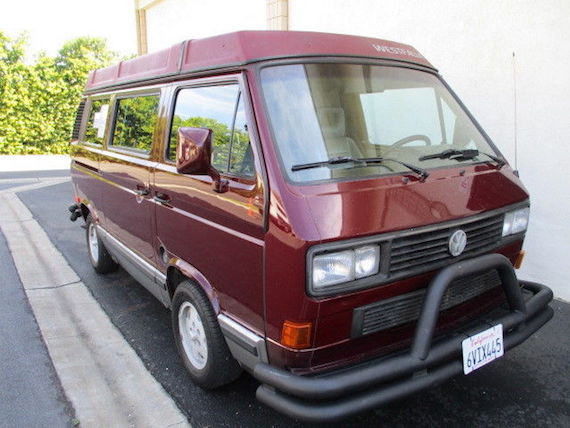
Late-model burgundy Vanagons were the first to ever catch my eye, and even as I’ve spent the last several years exploring the many variations and degrees of modification available for this versatile van, it’s still the look I find most appealing. This 1991 model has steel bars instead of the clean fiberglass, body-colored bumpers available at the end of the lifecycle, ostensibly to protect your legs and engine from the natural weak points of the cab-over design. They may not be sleek but they don’t look bad, and it seems practical to protect where this guy has put most of his money – the engine. It doesn’t say how long into its 198k-mile life it received the rebuild, but the engine was redone into 2.2-liter form and apparently all engine parts were specially hardened before assembly. The original interior is in great shape for having covered almost 200k, and the upper bed has only been used once. This no-frills, all-business Westy is available for a reasonable $18,300.


